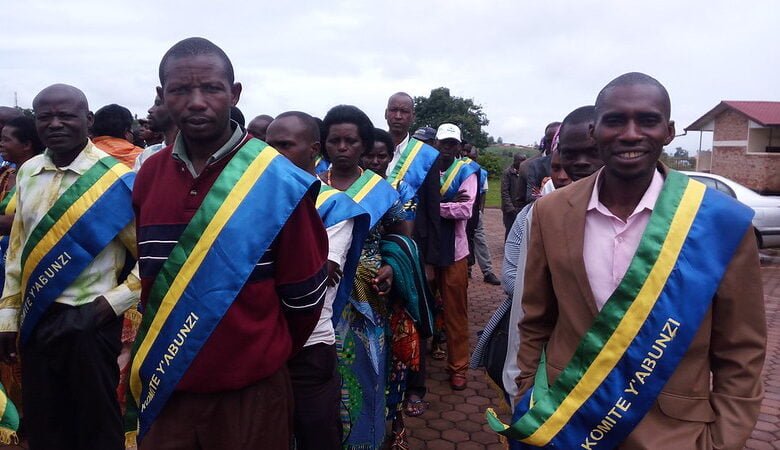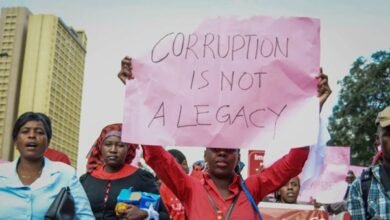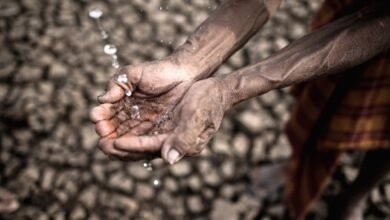Rwanda : 30 years later, local traditions at the heart of reconstruction
In Rwanda, 30 years after the genocide, local traditions are proving to be unexpected pillars of reconstruction. Approaches rooted in culture and community, such as the community courts "Gacaca" and the initiative "Umuganda," have proven to be inspiring models for development, offering valuable lessons for Africa and beyond.

By Aimable Twahirwa, in Kigali
In the aftermath of the genocide against the Tutsis in 1994, Rwanda was faced with monumental challenges of justice and reconciliation. Confronted with judicial and carceral systems unable to adequately address the crimes committed, the country embarked on a profound reflection on how to prosecute the guilty while fostering genuine national reconciliation.
The community courts known as « Gacaca » (« the grass »), inspired by the reconciliatory judicial traditions of pre-colonial Rwanda, emerged as an innovative response to this crisis. Launched in 2001, these courts adjudicated 1,059,298 genocide-related cases, with a conviction rate of 65%. Led by citizens and grounded in traditional conflict resolution principles, the Gacaca offered a means of delivering justice while paving the way for reconciliation.
Rwanda’s Attorney General, Aimable Havugiyaremye, asserts that beyond their judicial and reconciliatory mission, the system of these community courts, halfway between traditional and conventional justice, established in 2001, enabled the prosecution of those responsible for the 1994 genocide, charged with organization, preparation, incitement, rape, sexual torture, and genocide planning.
The role of the Gacaca courts is pivotal in understanding the dynamics of participatory justice in Rwanda. Their establishment was an act of faith in community values, a return to cultural roots to restore a torn country.
Participatory justice and community work

Beyond legal innovations through these popular courts, another mechanism of community justice has been institutionalized since 2004 to settle disputes within the community, including those previously brought before regular courts.
Thus, the « Abunzi », community mediators, have also played a crucial role in conflict resolution, particularly in post-genocide land disputes. With approximately 30,000 mediators across the country, Rwanda has demonstrated its commitment to a community-based approach to justice.
A recent report published by the Rwanda Initiative for Sustainable Development (RISD), an NGO based in Rwanda, reveals that the « Abunzi » are among the « community » judges who have gained public trust for playing a key role in land dispute resolution since the 1994 genocide.
Rwandan Minister of Justice Dr. Emmanuel Ugirashebuja emphasizes the importance of local communities in this dispute resolution system. According to him, Rwanda has decided to return to its cultural roots in repairing the social fabric torn by the genocide against the Tutsis in 1994.
These initiatives have been internationally recognized, with Rwanda receiving the Commonwealth Award for Access to Justice. The Abunzi and the Integrated Case Management System (IECMS) have been hailed as successful examples of using local solutions to promote justice and reconciliation.
Based on Rwanda’s experience with reconciliatory justice, some African countries are learning lessons for the practice of popular justice, asserts a Rwandan jurist.

Beyond the judicial sphere, the « Umuganda » initiative, which literally means « coming together for a common purpose to perform an activity », embodies the spirit of community development in Rwanda. This practice, which obliges every citizen to participate in monthly community work, has become a model for many African countries and beyond. Focusing on improving living conditions and environmental protection, Umuganda symbolizes collective commitment to societal well-being.
While some Umuganda activities focus more on infrastructure such as building schools and housing for those in need, efforts are primarily concentrated on environmental protection and improving hygiene conditions.
« Umuganda is a good example of initiatives for community development, » affirms Jean Claude Musabyimana, Rwandan Minister of Local Administration.
Rwanda’s experience demonstrates the power of local traditions in post-conflict reconstruction. By embracing its cultural values and actively involving its community, Rwanda paves the way for true healing and sustainable development.






